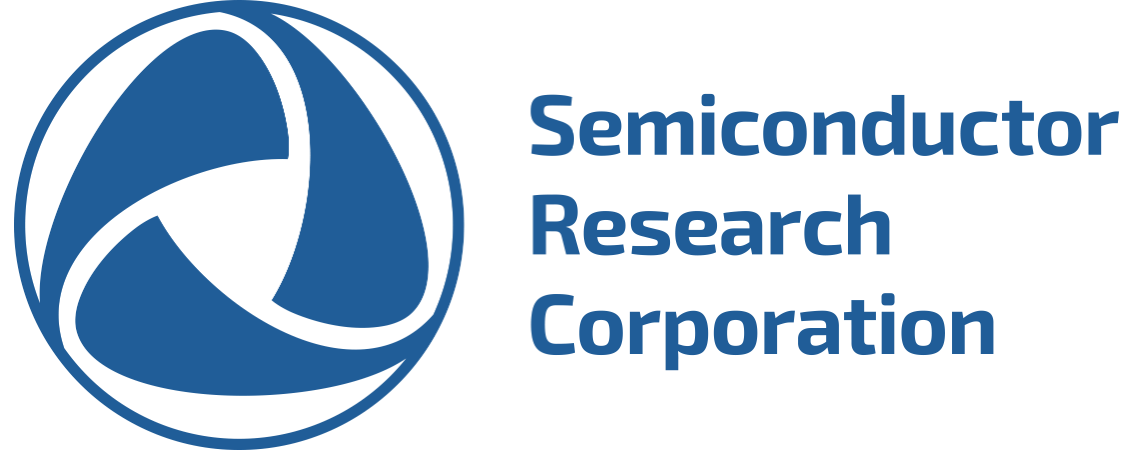Maximizing the Value of Your Research Investment
See also the GRC Benchmark Practices Handbook.
GRC manages high priority research for member organizations by involving them in the research planning phase and then ensuring that university researchers and industry scientists and engineers communicate throughout the research. Interactions are increased through serving as liaisons, mentoring students, participating in strategic planning and research reviews, transferring technology, and rapidly communicating results. Research priorities are constantly reviewed and modified to increase members' return on investment.
Effective Research Management
The Research Program is organized into eleven thrust areas: 1) Efficiency and Performance Research for Connectivity Constrained Computing (EP3C), 2) Trustworthy and Secure Semiconductors and Systems (T3S), 3) Innovative and Intelligent Internet of Things (I3T), 4) Analog/Mixed-Signal Circuits, Systems, and Devices (AMS-CSD), 5) System Level Design (SLD), 6) Logic and Memory Devices (LMD), 7) Computer Aided Design and Test (CADT), 8) Packaging (PKG), 9) Semiconductor Synthetic Biology (SemiSynBio), 10) Environment, Safety and Health (ESH), and 11) Nanomanufacturing Materials and Processes (NMP), Each thrust area is managed by a SRC Director and an associated Thrust Technical Advisory Board (TAB), comprised of scientists and engineers from member companies. The TABs work with the Directors to provide focused direction and oversight of GRC-funded research.
GRC's research management develops specific goals to guide, focus, and rank research efforts and to provide a basis for measuring progress and obtaining the needed results. Total cycle time required from invention to commercialization is shortened via the GRC's research process and quality programs. By committing to the principle of continuous quality improvement, the GRC manages its internationally acclaimed, industry-driven research program at a very low total operating expense.
See also the Policy Statement on Incremental Funding.
Relevantly Educated Graduate Students
A large investment in research is the foundation of microelectronics, the fastest growing industry in the world. In the past, North American universities have provided the majority of this research. Now, members help select and manage research projects at premier worldwide universities. In return, students and faculty receive the involvement and guidance of an international network of liaisons from member organizations.
Many GRC-funded students participate in internships and graduate to research positions in member companies. They arrive as new employees trained in leading-edge technologies who are able to contribute immediately to the next generation of microelectronics technology. The Student Relations Program provides a central contact for student-related information and an electronic resume distribution service. This program is hailed by member companies as a highly effective way to track the premier research talent entering the industry.
Timely and Efficient Technology Transfer
The ultimate benefit of the GRC's research management activities is the timely and efficient transfer of relevant, world-class research results to its members.
A powerful technology transfer tool is the Industry Liaison Program which encourages interaction between member company engineers and university researchers on specific projects. Acclaimed by industry and academia as being "well worth the time invested," this program allows industry to relate needs to university researchers and also to quickly transfer research results and new technologies to industry.
Since 1982, we have successfully created an environment that encourages the transfer of knowledge and technology, the exchange of information, and the creation of consensus on the research agenda. To support this objective, GRC organizes numerous workshops, topical research conferences, reviews, and technology transfer courses that bring people together to learn and to discuss research goals and results. In addition, members gain technology perspectives through strategic planning and evaluation of research activities.
Web Access to Research Results
Priority access for members is the most important aspect of any technology transfer methodology, especially since the organization is chartered to support long term research with lead times of eight years and beyond. This time delay between a research results becoming available and their integration into a technology solution requires an effective process for exposing concepts and knowledge and making them continuously visible to the large workforce of engineers within the GRC community. Immediate access to research information and results is provided to members with accounts on a secure Web site.
To satisfy the need to continuously communicate new research concepts and knowledge, we have created the online Research Engine. With the Research Engine, you can search an onboard database loaded with up-to-date research results and program information. The Engine provides a quick and easy method for investigating one of the 1800+ research tasks funded by GRC, accessing one of the more than 30,000 research publications available online, searching for resumes of current students, and reviewing patents related to GRC research tasks. Research information is updated daily to reflect changes in the research program.
Our Commitment to Members
GRC continues to monitor members' research needs, preferred formats, and outstanding concerns and provides the research results required in a timely manner. It will remain agile, successfully responding to changing requirements and will always strive to improve upon current and future member satisfaction.


 SRC.org Links
SRC.org Links